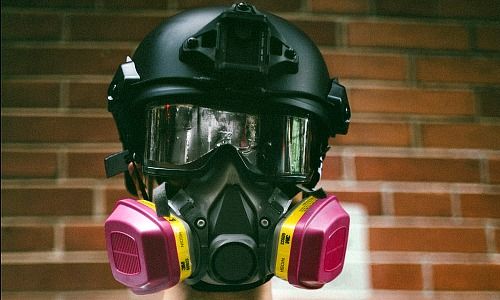Shruti Advani: Hong Kong Still an Expat Haven?
Despite weekends spent indoors to avoid protests and tear gas seeping into air-conditioned homes, Hong Kong’s 650,000 expatriates are reluctant to leave. finews.asia’s Shruti Advani investigates.
Like countless professionals in the financial services or related industries, I lived in Hong Kong for many years, safely ensconced in the cliched expatriate bubble of private members clubs, chauffeured cars, and portered residential buildings. Over the last six months, I have spoken with bankers, lawyers, hedge fund managers, venture capitalists and entrepreneurs who find their similarly idyllic existence in Hong Kong threatened.
An Australian family whose routine Sunday evening pizza jaunt to ICC turned into something more sinister when they got caught in tear gas firing; a Singaporean fintech entrepreneur whose children stayed home for a week while the train station they used for their daily school run was repeatedly set on fire and attacked; a Swiss banker who was stopped and interrogated on his way to the airport to catch a Sunday evening flight to London - I have listened to their stories with mounting alarm, connecting them to headhunters on the other side of the world who may be able to help them reinvent themselves professionally.
Anecdotally, it would seem that assets and those who are tasked with managing them, are fleeing the uncertainty of Hong Kong.
A Tale Of Two Cities
«There have always been two sides to Hong Kong - the life you can live here if you are rich and the life of the average man are very different,» says a Cantonese-speaking managing director at a Swiss private bank. The protests, which have wrecked the livelihood of the average Hong Kong-ee – have been an «inconvenience» to its expatriate population, she says.
Demonstrations have been geographically contained to areas where over 90 percent of the population is local and the expatriate strongholds of the Midlevels, Stanley, and Discovery Bay have been unaffected. Reports to the contrary in some sections of the media are «gross exaggerations» says an Italian colleague of hers who is in Europe for Christmas but intends to go back to Hong Kong with his three children in the new year.
Ethics Aside
At industry-leader UBS, which has the largest presence in Hong Kong from amongst the Swiss banks, net new money in Asia reached a record of $10.9 billion in the third quarter of the year when the protest in Hong Kong was at its most intense.
To put this into context, there were no net new inflows in the bank’s Americas business during the same period whilst its flagship Swiss wealth business attracted $3.2 billion and Europe and the Middle East together brought in $1.9 billion.
Obvious Reasons
Citigroup's revenues from its Hong Kong franchise were reportedly up 8 percent year-on-year for the same quarter. «Do the math, unless bankers are physically prevented from conducting business in Hong Kong banks will continue to invest in Hong Kong,» says a spokesperson at an international bank.
Regardless of which side of the political or moral debate its expatriates and entrepreneurs may decide to take, its business as usual for all but a small section of Hong Kong’s wealthy. «We have yet to see any real material impact,» confirms a private banker in the city, clients with large retail or hospitality holdings are the exception for obvious reasons.
Moving Extra Cash to Singapore
In a recent interview with this publication, a Singaporean banker contested claims that the region’s wealthy were moving mountains of money out of Hong Kong and into what many consider a more stable jurisdiction.
«We have seen a lot of new account openings in Singapore but these are typically being capitalized with fresh funds or are dormant secondary accounts,» he admitted off the record. «I know of clients who have booked profits from liquid investments into these Singapore accounts, so in a sense, they might move extra cash, but I wouldn’t say clients are emptying their Hong Kong bank accounts to book everything in Singapore.»


























